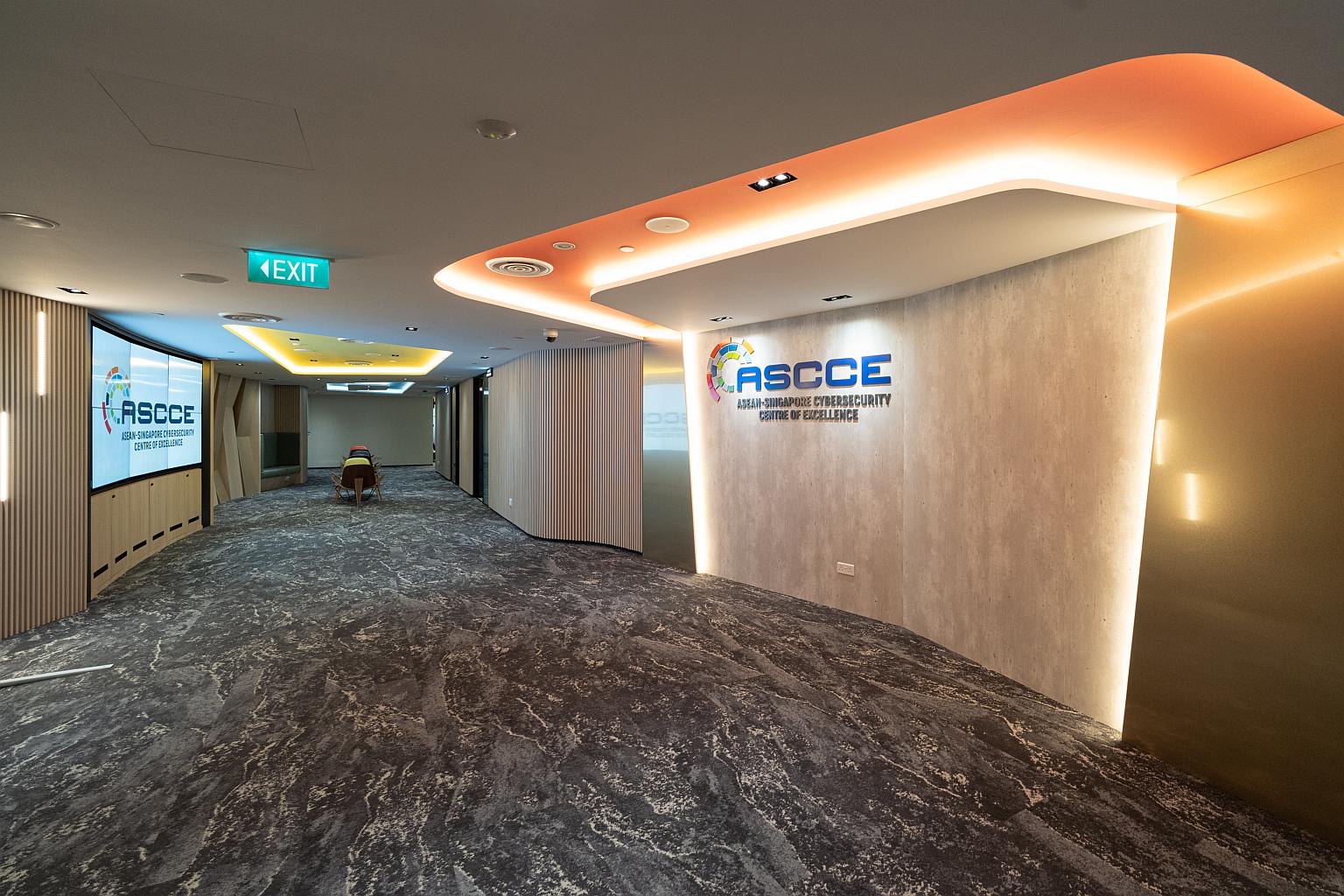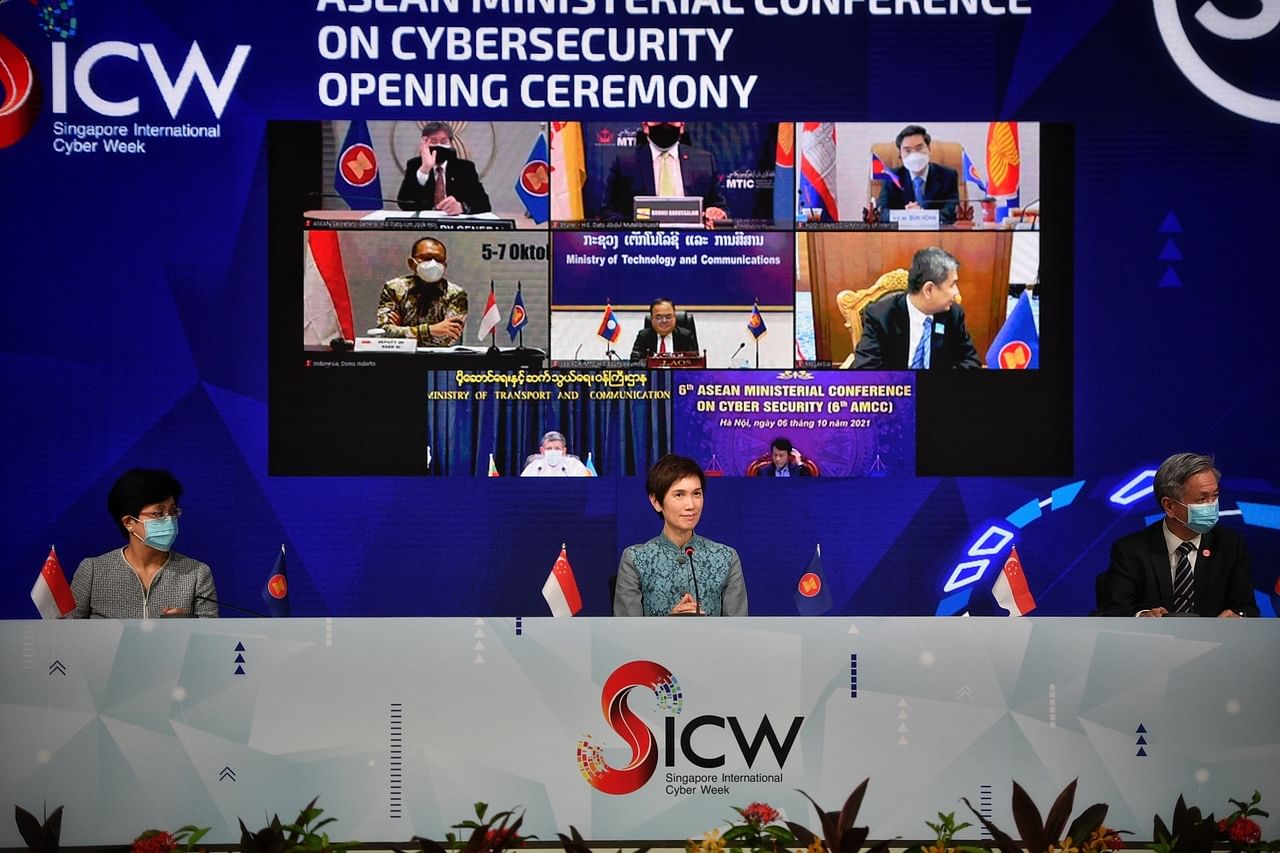Asean-S'pore centre for training national cyber-security teams opens new campus
Sign up now: Get ST's newsletters delivered to your inbox

The centre provides technical training for national Computer Emergency Response Teams that respond to cyber-security incidents in Asean countries.
PHOTO: CYBER SECURITY AGENCY OF SINGAPORE
SINGAPORE - A training centre for Asean national teams responding to cyber-security incidents officially opened a new campus in Singapore on Wednesday (Oct 6).
The Asean-Singapore Cybersecurity Centre of Excellence (ASCCE) also seeks to strengthen member states' cyber-security strategy development, legislation and research capabilities.
The opening of the centre's new campus in North Bridge Road was announced by Minister for Communications and Information Josephine Teo at the Asean Ministerial Conference on Cybersecurity.
She was speaking at the Marina Bay Sands integrated resort but the conference was held virtually.
Mrs Teo, who is also Minister-in-charge of Smart Nation and Cybersecurity, said that the centre is one way to help build cyber-security skills in the region.
She explained that building such capabilities forms an important foundation to help countries put in place norms for responsible state behaviour in cyber space.
The minister said that there has been a step change in the cyber threat landscape in the past year, with more frequent ransomware and cyber attacks targeting the suppliers of organisations.
For instance, reports last December said that information technology management software provider SolarWinds was targeted by hackers, with about 18,000 customers hit globally.
These incidents "highlight the need for international cooperation to build consensus on the rules, norms, principles and standards governing cyberspace", said Mrs Teo.
The ASCCE was first announced in 2018. Its main North Bridge Road campus began operations in April last year but the official opening was delayed by the Covid-19 pandemic. Another training facility for the centre located in Temasek Polytechnic opened earlier in October 2019.
The centre expands on the Republic's $10 million Asean Cyber Capacity Programme to build the cyber-security capabilities of officials from the 10 Asean member states.
About $30 million has been earmarked to fund the ASCCE for five years until 2023.

Minister for Communications and Information Josephine Teo at the Asean Ministerial Conference on Cybersecurity on Oct 6, 2021.
PHOTO: ST
The centre provides technical training for the national Computer Emergency Response Teams that respond to cyber-security incidents in Asean countries.
It also promotes the sharing of publicly accessible information on cyber threats and attacks, as well as best practices, among these teams.
The centre also functions like a cyber think-tank, conducting research and training in areas such as international law, cyber strategy, legislation, cyber norms and other cyber-security policy issues.
Virtual cyber-defence training and exercises are conducted by the centre too.
The Cyber Security Agency of Singapore works with cyber-security experts and trainers to design and deliver programmes at the ASCCE.
The agency also collaborates with Asean members and dialogue partners, as well as other international partners, on this.
So far, the centre and the Asean Cyber Capacity Programme have worked with more than 40 partners from the public and private sectors, academia and non-governmental organisations.
More than 30 programmes attended by over 900 senior officials from Asean and beyond have been delivered by the centre and programme.
Of these, 12 programmes have moved online since May last year due to Covid-19 travel restrictions.
During Wednesday's Asean conference on cyber security, ministers discussed, among other things, a new road map to help keep the region's cyberspace safe and secure.
It is expected to succeed the 2017 to 2020 Asean Cybersecurity Cooperation Strategy.
The new road map will place a stronger focus on initiatives to support a rules-based order in cyberspace. This includes looking into improving trust in cyberspace and strengthening coordination among Asean members on cyber policies.
"It is timely to update the strategy... to address evolving challenges. Singapore is happy to take the lead," said Mrs Teo.


